Guide to D&D 5e Spell Scroll Creation

Hex is usually seen as a bad spell to expend spell slots at Tabletop Builds, but since Warlocks have a lot of spells they can prepare, this can go well. Especially since hex does not require the use of a slot, a Warlock can concentrate on ‘hypnotic patterns’ or ‘summon greater demons.’ If you are into DnD, you must have sometimes encountered spell scrolls. What are they? Who can use them and how? How many types are there? In this 5E scroll creation guide, we will discuss all these questions and some more!
You can consume spell scrolls in DnD 5E to cast various spells. Some will be in dungeons, whereas the rest can be purchased. You will find many that are forgotten about, unused, collecting dust at the bottom of your inventory, or worse, hoarded uselessly at the end of campaigns. Here’s some food for thought- 5E spell scrolls should be utilized way more!
What is D&D 5E Spell Scroll?
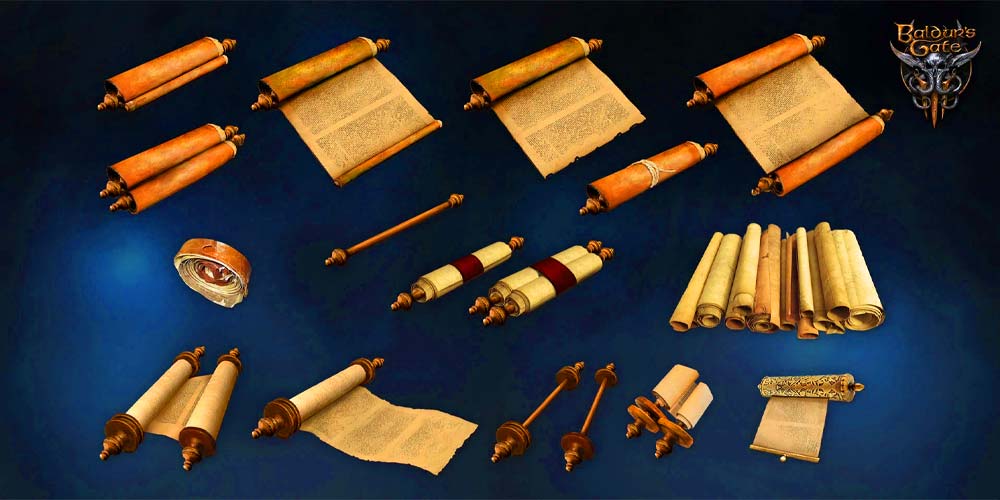
According to the Dungeon Master’s Guide, a 5E spell scroll is “a magic item that bears the words of a single spell, written in a mystical cipher.” Long story short, a spell scroll magically has a spell in its parchment, and activating it unleashes the spell within. Scrolls are essentially rolls of paper, often attached to wooden rods and stored in protective containers such as jars, tubes, and boxes made of jade, ivory, metal, leather, or wood. Use a scroll, and it will self-destruct, crumbling to dust. Note that they require an action to use at publication.
Here’s something you might not have known before: not all scrolls are spell scrolls; some can produce effects beneficial or harmful without actually casting a spell. A few “bear unique incantations that produce potent wards,” which are not based on spells. You also have a scroll of protection with incantations with a magical effect that has nothing to do with spells.
How to Obtain D&D 5E Spell Scroll?
You can purchase, create, or stumble across a 5E spell scroll. The Dungeon Master’s Guide contains spell scrolls of different levels and rarities. If you find a spell scroll, it means the DM used the rules for a discovered spell scroll. Your DM can sway over whether the 5E spell scroll contains a default or custom modifier/DC embedded in its parchment.
Suppose you create your spells if you can afford them. It will require material components and a few other things; however, activating them does not require the same components. Skipping material components is one of the biggest reasons why spell scrolls make for excellent loot!
What is the Appeal of Scrolls in D&D 5E?
Here’s what forms the appeal of 5E spell scrolls:
- Conservation of resources in the form of spell slots is a biggie. Sure, their creation costs time and money, but if you can afford them, do not let them pass. You can capitalize on spell slots you saved to better prepare yourself for posing a challenge during upcoming adventures. As opposed to pearls of power or even spell gems, 5E spell scrolls are cheap, easily accessible, and do not have attunement requirements. These make for significantly more appealing options.
- Scribing down spells can be quite helpful for your party, especially if you scribe scrolls for fellow teammates using tomes, ritual books, and spell books. They can copy them down to add them to the repertoire for repeated use. You can also create scrolls for those who have spells in their list but are not prepared or known. This will add to their abilities.
- This holds true, especially for prepared casters. Scribing scrolls is a good way to swap out niche spells or even the ones you do not quite use. This can be hard to swallow if you are a known caster, but prepared casters can make the most out of it.
- Then there is the fun side of scrolls. They cannot be counter spelled since spells from magical items do not need much of any components unless stated otherwise. In counter spell, you take the reaction when you notice a creature within 60 feet casting a spell, but when components are not used, that becomes impossible.
Which Spells to Scribe?
Which level of 5E spell scrolls you should acquire will largely depend on the game you play. While a table might frequently let you have a day of downtime, another might have months or none! We recommend against getting spells at higher levels (esp more than the 3rd) since the time and cost grow exponentially. Moreover, every workweek you spend on 5E scroll crafting (a downtime activity) has a 10% chance of getting complicated.
Most level 1 spells should be scribed down. Below we have listed out some useful spells that we would highly suggest you go for:
1. Silver Barbs

Since 1st-level spell slots can become tighter and tighter with new spells getting introduced frequently, having some scrolls on hand can help alleviate some of that. You will likely have another caster in the party who can use a scroll of this one, so you can help each other by simply sharing your scrolls.
2. Hex

Hex is usually seen as a bad spell to expend spell slots at Tabletop Builds, but since Warlocks have a lot of spells they can prepare, this can go well. Especially since hex does not require the use of a slot, a Warlock can concentrate on ‘hypnotic patterns’ or ‘summon greater demons.’
3. Shield

If you are a Warlock with the ‘Hexblade Otherworldly Patron’ or one with some levels into Divine Soul Sorcerer or similar, you can get great mileage out of 5E shield scrolls. Shields do not lose their great potency, but deciding between your three synaptic static slots can be hard. Note that casting spells from a spell scroll takes the same time as a scroll’s normal casting time.
4. Mage Armor

Mage armor is a great spell for Wizards or Sorcerers it is among well known wizard spell, if used well. First, try to rest and cast the spell. However, a day of adventuring might take longer than 8 hours, so using 25 gp for a solid boost in AC for the remainder of the day can be quite worthwhile.
5. Expeditious Retreat
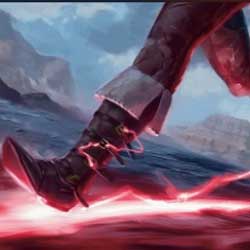
Quite like hex, this one can be a good bonus action if you are not using concentration or if you don’t want to use another leveled spell. You will often find situations where you might have already cast synaptic static in a round and need a better angle for Repelling Blast or when you find an opportunity to default kill or kite creatures through your now superior movement.
6. Goodberry
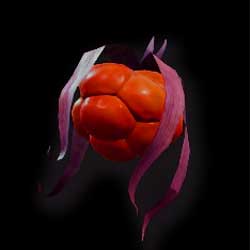
You must know that scribing a good berry scroll usually costs the same as crafting a healing potion, but it is definitely the superior option if used out of combat. You get guaranteed healing 10 hit points, as opposed to 7 on average from the potion.
A berry cannot be fed to an ally, but a potion of healing can be administered unless your DMs specify differently, allowing you to revive unconscious creatures. In that case, the healing difference between 7 average HP from the potion and the 1 HP from a single berry hardly matters.
7. Gift of Alacrity

Technically speaking, to use this 5E spell scroll, you might run into issues with Rules as Written. Since, Dunamancy spells are not added to the spell list if you are part of this Arcane Tradition, even though you do get to prepare them, the spell scroll would be unusable. This seems to be an oversight, but have a chat with your DM to check if you are allowed to cast this spell after scribing it down.
8. Bless

Clerics and Paladins make good use of this one, with the former getting their level 1 spell slots opened up to cast commands and the latter using their slots for Divine Smite. Have a Cleric in your party proficiently in Arcana while you are playing as a Paladin? Offload some of the responsibility of scribing the spells. Multiple people can also scribe spells together.
9. Web and Entangle

When scribed, they have a save DC of 13. If used as a cantrip, these efficient spells can be quite strong. Entangle can be good in certain situations, and the Druid spell list is filled with great options, so you will often be unable to prepare much of everything you want. A batch of scrolls of Entangle can be a good way to be conservative with your spell slots and spell preparations for the later tiers of play.
10. Healing Word

Clerics can look at the healing word as best cleric spell in their arsenal, a highly recommended spell against upcasting. Spending the time and money to acquire this at level 1 is not an issue. If you have 10 of these, you can pick any other great spell on the spell list since it no longer needs to clog up your prepared spells on the off chance someone becomes unconscious. An extra spell prepared is worth more than a few gold pieces and time, if available.
11. Revivify
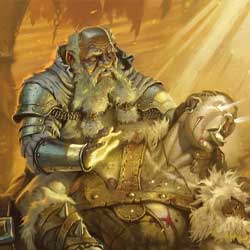
Revivify is probably not something you should cast every adventuring day, and this is quite the no-brainer to keep its scrolls in stock. If your DM rolls a Scroll Complications table on the Scribe, there is a small chance that you might lose your diamonds without getting your hands on a scroll of revivify; getting the correct scroll has a great chance, so the risk is worth it, as long as you are not too strapped for cash.
12. Lesser Restoration

This one is a tough sell to keep prepared constantly, but it is also extremely useful in niche situations, making it the perfect candidate for scribing. If you require lesser restoration, your situation is quite dire, and having them on hand after swapping this one out might be a lifesaver.
13. Misty Step
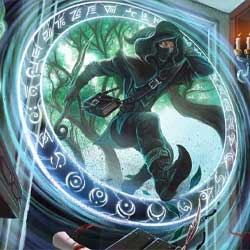
Misty Step can be good at the right place at the right time, but you won’t feel the need for this much given good positioning. It will help if you swap out this one as a Warlock once you have enough spell scrolls. Wizards can get away with preparing it again once they run out, so they don’t need that many.
14. Pass Without Trace

This one is a great party-wide buff spell for numerous situations, and the ability to cast it for 250 gp without spell slots makes it even better. All parties should have a pass without trace, so getting scrolls for it is worth their weight in gold.
How to Use D&D 5E Spell Scroll?
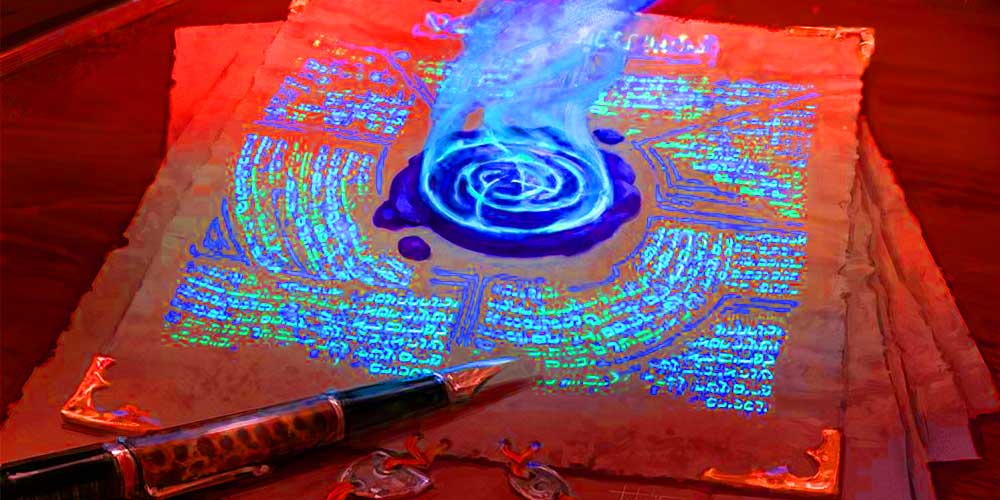
In a spell slot, you will find a single spell readable and usable only if it is on your class’s spell list. You can read it using the scribed spell’s normal casting time and let the level determine its DC or attack bonus. You have to make an ability check with your Spellcasting ability modifier if the spell is of a level higher than you can usually cast.
You will have a DC of 10+ at the spell’s level, and on a failed check, it will disappear from the scroll without any effect. Scroll mishaps can happen if you fail to make a DC 10 Intelligence saving throw and then fail the roll on the Scroll Mishaps table. Here’s the good news: it happens quite infrequently, and most of its effects aren’t half as half.
Who Can Use D&D 5E Spell Scroll?
The ability to cast a scroll spell depends on your character’s class spell list. The only exception is that Light Domain Clerics can cast Fireball as a Domain Spell. If you are a multiclass character, you can reference the spell list of each of your classes to determine if you can use a particular spell scroll.
It can be hard for a character to activate spell scrolls that contain a spell of levels that exceed the character’s spellcasting ability. In such cases, the Dungeon Master’s Guide requires characters to roll ability checks with spellcasting modifiers for successful casting. If failed, the spell within the scroll will fade away forever without taking effect.
Can You Store Spells in Non Scroll Items?
Players and DMs can ‘flavor’ spell scrolls to be something else. For instance, Tasha’s Cauldron of Everything encourages D&D players to be creative with reskinning their core mechanics. We recommend justifying your creativity by placing arcane runes on an item by ink or carving.
What Are Spell Attack Modifiers?
Modifiers and DCs for spells cast are dependent on how each scroll was created. You can create a spell scroll, which means the embedded spell’s DC and attack modifier will be largely based on the scroll’s creator. Here’s a quick overview of DCs and spell attack bonuses by the spell scroll levels only if they are found and not crafted:
- 0-1- Common, DC 13/ +5 attack bonus.
- 2-3- Uncommon, DC 15/ +7 attack bonus.
- 4-5- Rare, DC 17/ +9 attack bonus.
- 6-8- Very Rare, DC 18/ +10 attack bonus.
- 9- Legendary, DC 19/ +11 attack bonus.
A person activating a spell scroll becomes the spellcaster for concentration and other spell specifications. Note that spell saves DCs and spell attack modifiers depend on the original spellcaster who formed the spell scroll, not the person activating it.
Conclusion
Unlike most magic items, 5E spell scrolls are a way to amp up your party’s resources which you can control, for the most part. You might come across scroll spells by crafting, finding, or purchasing them. If you are proficient in Arcana, you can craft scrolls by scribing them. Do think about your teammates and how you can help them out. We hope this guide helped establish the case for 5E spell scrolls. Happy questing!






